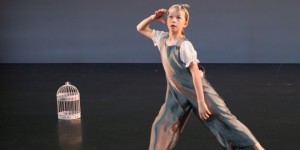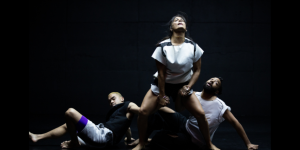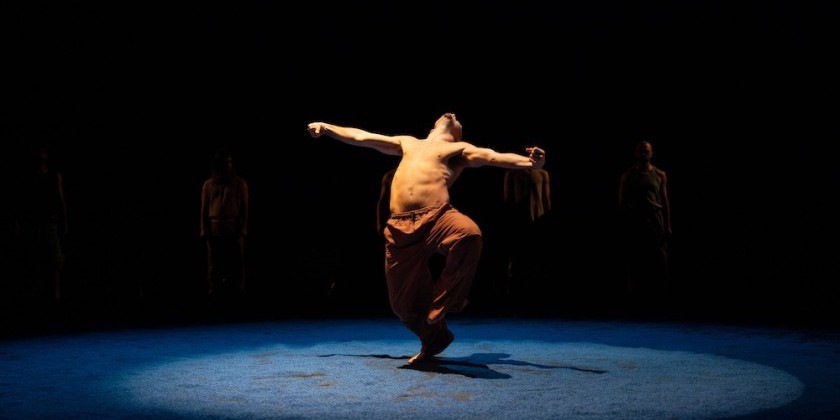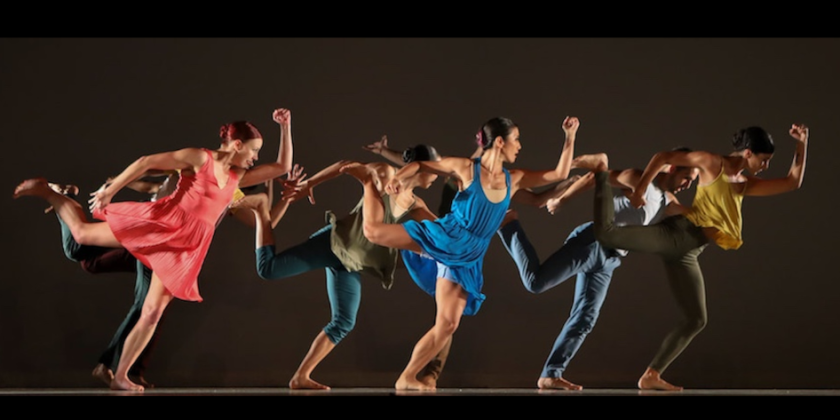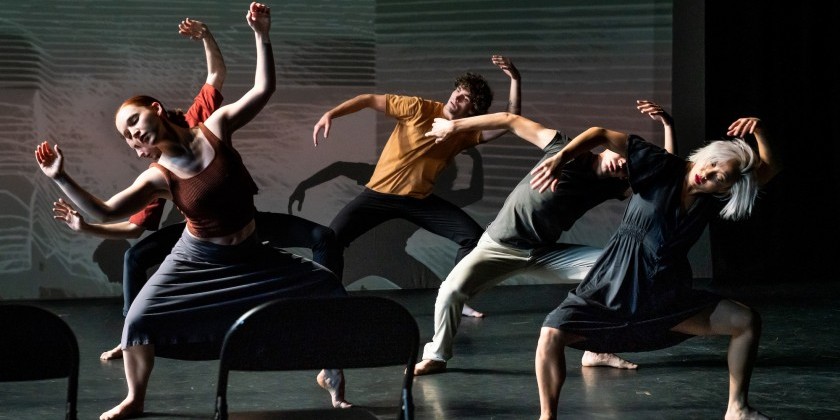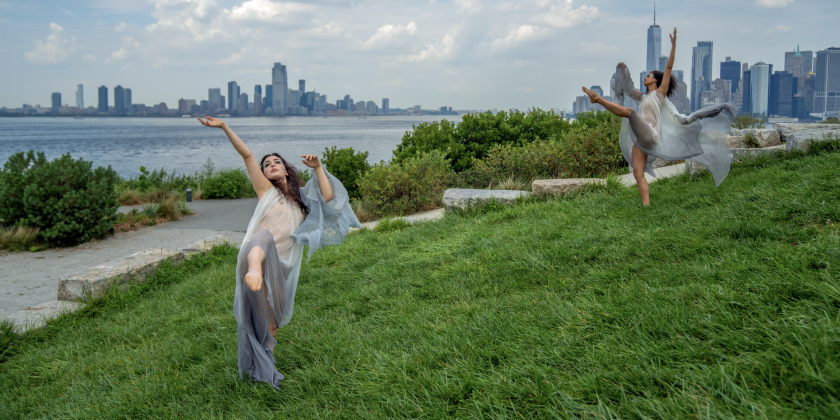IMPRESSIONS: Armitage Gone! Dance, Buglisi Dance Theater, Elisa Monte Dance and Jennifer Muller/The Works Together at New York Live Arts

June 14, 2017
Choreography: Karole Armitage, Jacqulyn Buglisi, Elisa Monte, Jennifer Muller, Tiffany Rea-Fisher
Performances: Armitage Gone! Dance, Buglisi Dance Theater, Elisa Monte Dance, Jennifer Muller/The Works
Pictured above: Buglisi Dance Theatre in Moss 1
Festivals feel like the dance version of a cocktail party. Chockablock with short pieces and myriad viewpoints, they afford audiences the opportunity to get acquainted with usually emerging choreographers in a convivial environment.
But what if you knew all the choreographers, were familiar with their aesthetics? Well, then it becomes a feast, filled with substantive fare that makes you yearn to spend more time with each artist.
For five days in June, four lauded and long-on-the-scenes companies take the stage at New York Live Arts with six works by five choreographers. While the hallmarks of a festival — diversity, brevity — are on display, as a whole, the show acts as a testament to the power and ingenuity of female artists.
Choreographer Jacqulyn Buglisi’s Buglisi Dance Theatre presents Moss 1, the first in a series of works inspired by botanist R.W. Kimmerer’s Gathering Moss and Braiding Sweetgrass. Buglisi, a former principal with the Martha Graham Dance Company, fashions a shimmering, reverent atmosphere for eight women. Graham-based side tilts and spirals intersperse with sinuous gestures and skitters reminiscent of Indian classical dance. Paula Jeanine Bennett’s commissioned score (played live by cellist Christopher Lancaster and the composer, who provides percussion and vocals) casts a spell with delicate melodies atop bird-bright cadences. The effect of Moss 1 is ethereal, deities executing arcane rituals to preserve a luminous yet fragile world.

Armitage Gone! Dance’s Karole Armitage is renowned for funking up classical ballet’s virtuosity. The company offers a preview of Walls, which will premiere in full at the Ravello Festival in Italy, and excerpts from Ligeti Essays, set to hyperbolic music by György Ligeti. Armitage employs a stop-and-go tempo where flurries of flicking developpés and whacking penchées abruptly halt before resuming. The partnering sections stand out for their quirky beauty. A dip with the woman’s arms extended like an air traffic controller’s trades the tedium of romance for pleading communion. While both of Armitage’s works register as cryptic, the steps manifest with specificity, like a Magritte physicalized.

Jennifer Muller/The Works shows The Spotted Owl (Chamber Version), which premiered in 1995. Although over two change-filled decades have since passed, the piece, featuring both text and movement, feels prescient. Eight performers opine while standing in line; they sweep through space as one woman rakes “leaves” (rectangular scraps scattered across a rust-colored tarp). Sometimes funny and always poignant, the piece is overtly political, traversing between issues of economic stratification and endangered species like the spotted owl of the title. It’s not hard to imagine that The Spotted Owl will resonate twenty years from now.

The most exuberant offerings come from Elisa Monte Dance, with one revival (Day’s Residue) by Monte and a premiere (1:3:4:1) by current artistic director Tiffany Rea-Fisher. Day’s Residue unfolds like an Edgar Allan Poe story with four men and four women briskly bowing and leaping through the intricate patterns of baroque dance. The all-male 1:3:4:1 — the title refers to the number of dancers performing at a given time — exudes testosterone with its rocketing gymnastics and strident pacing. The gothic costuming and the unapologetic athleticism of both works flaunt a punky but charming aggression.
There’s not a bad piece — or, more important, a boring one — on the bill. While not everything may be for everyone, the maturity and finely honed viewpoints presented speak to the richness of the New York dance scene. As funding gets harder to procure, shared bills between high-profile companies may make more sense — an exhilarating win/win for everyone.
The Dance Enthusiast Shares IMPRESSIONS / our brand of review and Creates Conversation.
Check out our other IMPRESSIONS here. Here are other TDE articles about Armitage, Buglisi, Monte and Muller.
Share your #AudienceReview of this show or others for a chance to win a prize.






